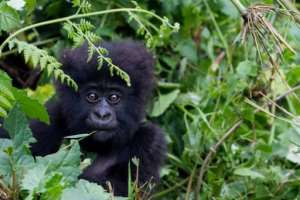
As the world marked World Wildlife Day, World Animal Protection urges you not to keep wild animals as pets. The campaign dubbed a “Promise4Wildlife” calls upon people to protect small wild animal species which are often captured or farmed and kept in homes as pets. This comes at the backdrop of the outbreak of the deadly coronavirus which is feared to have originated from wild animals.
According to the organisation, 2.7 million animals were legally traded internationally between 2011 and 2015. This figure represents the top five ‘big’ and ‘little’ species that are being taken from the wild and or bred in captivity for their skins and the exotic pet trade.
Edith Kabesiime, Campaigns Manager at World Animal Protection says:
“When we think of wildlife, what comes to mind is the iconic animals, the lions, and the majestic elephants, but we forget the little animals like pangolins, the African Grey Parrots, the pythons which are taken from their habitats every day and caged as pets. Others are used in traditional medicine or even exploited for entertainment. These animals are being exploited and traded around the world with being the biggest consumers.
“Trading animals in this way may be legal, but it doesn’t make it right. This cruel industry hurts wild animals and can damage Africa’s biodiversity with devastating long-term impacts on livelihoods and economies too.
Africa’s unique wildlife has been commodified - exploited for money, without full consideration for their welfare or conservation - but it doesn’t have to be this way. We know we can benefit from living side by side these amazing animals. Thousands of visitors from around the world come to see them – it’s essential we protect this legacy for future generations.
“Together, we, as the global community and African nations can work together to be custodians of wildlife, or we can choose to allow this cruel exploitation to continue - to the point of no return.”
Notes to the Editor
• Nile crocodiles are intensively farmed to be slaughtered and skinned for their leather, with an average of over 189,000 skins exported annually between 2011 and 2015
• Cape fur seals find themselves at the centre of a horrific annual hunt held in Namibia. Thousands of pups are rounded up and clubbed and suffocated to death. Adult seals are shot or clubbed, and sometimes even skinned alive, due to demand for wild fur in fashion accessories
• Elephants are killed in the wild, for their ivory but also for their skins, which are used for jackets and car interiors. Due to their size, a humane death isn’t guaranteed, as bullets that miss their mark can result in a prolonged and agonising death
• Ball pythons were the most-traded live animal, with more than half a million exported between 2011 and 2015 alone. Most are shipped to the USA, for a life destined in a glass display tank
• African grey parrots were exported in their thousands for the exotic pet trade, with a total of 289,006 individuals exported between 2011 and 2015. African greys suffer considerably during capture, transport and in captivity.
• A total of 1,028 rhinos were killed in 2017 in South Africa alone, in some cases with them having their horns hacked while they are still conscious, causing unbearable suffering
• Pangolins, which are now considered the most heavily-trafficked mammal in the world, suffer tortuous and agonising deaths. They can be literally boiled alive to remove their keratin scales, which are highly valued in traditional medicine
• Lions are often poached using meat poisoned with crop pesticide as bait. They die an agonising death, and the animals unlucky enough to then feed on their carcass also suffer a similar fate.




 Akufo-Addo’s govt is the ‘biggest political scam’ in Ghana’s history – Mahama ja...
Akufo-Addo’s govt is the ‘biggest political scam’ in Ghana’s history – Mahama ja...
 Performance Tracker is not evidence-based — Mahama
Performance Tracker is not evidence-based — Mahama
 Four arrested for allegedly stealing EC laptops caged
Four arrested for allegedly stealing EC laptops caged
 $360 million IMF bailout not enough for Ghana – UGBS Professor
$360 million IMF bailout not enough for Ghana – UGBS Professor
 Shrinking Penis Allegations: Victim referred to trauma hospital due to severity ...
Shrinking Penis Allegations: Victim referred to trauma hospital due to severity ...
 Adu Boahen Murder: Case adjourned to May 9
Adu Boahen Murder: Case adjourned to May 9
 ‘I've health issues so I want to leave quietly and endure my pain’ — Joe Wise ex...
‘I've health issues so I want to leave quietly and endure my pain’ — Joe Wise ex...
 Let’s help seek second independence for Ghana before NPP sells the country – Law...
Let’s help seek second independence for Ghana before NPP sells the country – Law...
 New Force aims to redeem Ghana and West Africa — Nana Kwame Bediako
New Force aims to redeem Ghana and West Africa — Nana Kwame Bediako
 ‘I didn't say I would buy Ghana if voted against; I said I’ll buy it back from f...
‘I didn't say I would buy Ghana if voted against; I said I’ll buy it back from f...
